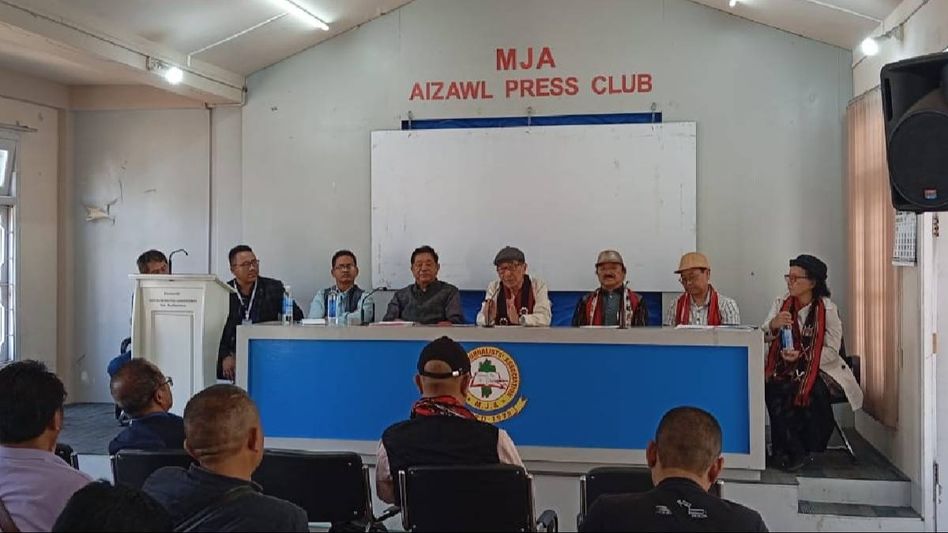Mizoram: Indigenous groups unite against government, oppose FMR, CAA, UCC and AFSPA
The crux of their opposition lies in the proposed scrapping of the Free Movement Regime (FMR) and the enforcement of border fencing along the Indo-Myanmar border, particularly affecting regions in Mizoram and Nagaland.
 Mizoram: Indigenous groups unite against government, oppose FMR, CAA, UCC and AFSPA
Mizoram: Indigenous groups unite against government, oppose FMR, CAA, UCC and AFSPAThe Zo Reunification Organization (ZORO) and the Nagaland Indigenous People's Forum (NIPF) have come together to oppose the policies of the Indian government. The joint memorandum of understanding, signed on March 16, 2024 highlights their collective stand against measures that threaten their peace, land, and economic survival.
The crux of their opposition lies in the proposed scrapping of the Free Movement Regime (FMR) and the enforcement of border fencing along the Indo-Myanmar border, particularly affecting regions in Mizoram and Nagaland. This move, they argue, would not only divide ethnic groups such as the Chin, Kuki, Mizo, and Nagas but also jeopardize their traditional way of life.
Highlighting the historical context, the memorandum points out that the British colonial administration recognized these regions as "Excluded Areas," neither Indian nor Burmese, leading to the establishment of the FMR. However, recent indications from the Indian government suggest a potential overhaul of this regime, sparking concerns among indigenous communities.
The repercussions of similar measures elsewhere, such as the border fencing between Mizoram and Bangladesh, serve as a grim reminder of the adverse effects on livelihoods and peace. Villages have been lost, cultivable land submerged, and economic activities disrupted, painting a bleak picture for those directly impacted.
Furthermore, the memorandum outlines four key areas of concern addressed to the Government of India:
Free Movement Regime and Border Fencing: The proposed abolition of the FMR and the introduction of border fencing threaten the seamless cross-border interactions essential for the socio-economic well-being of indigenous communities.
Forest Conservation Act (FCA) 2023: Indigenous agrarian communities express apprehension over losing their ancestral lands and livelihoods due to the implications of the FCA.
Citizenship Amendment Act (CAA): The CAA, coupled with the scrapping of the FMR, raises fears of further division and challenges to the socio-cultural fabric of indigenous peoples.
Uniform Civil Code (UCC) and Armed Forces Special Powers Act (AFSPA): The imposition of these laws poses a threat to the cultural autonomy and fundamental rights of tribal communities in the region.
The memorandum highlights the importance of upholding the United Nations Declaration on the Rights of Indigenous Peoples (UNDRIP), to which India is a signatory, and urges the government to reconsider its stance on these policies.
Both ZORO and NIPF call upon their fellow Nagas and Zo ethnics to support this memorandum as a crucial step towards protecting their collective rights and heritage.
Copyright©2025 Living Media India Limited. For reprint rights: Syndications Today









